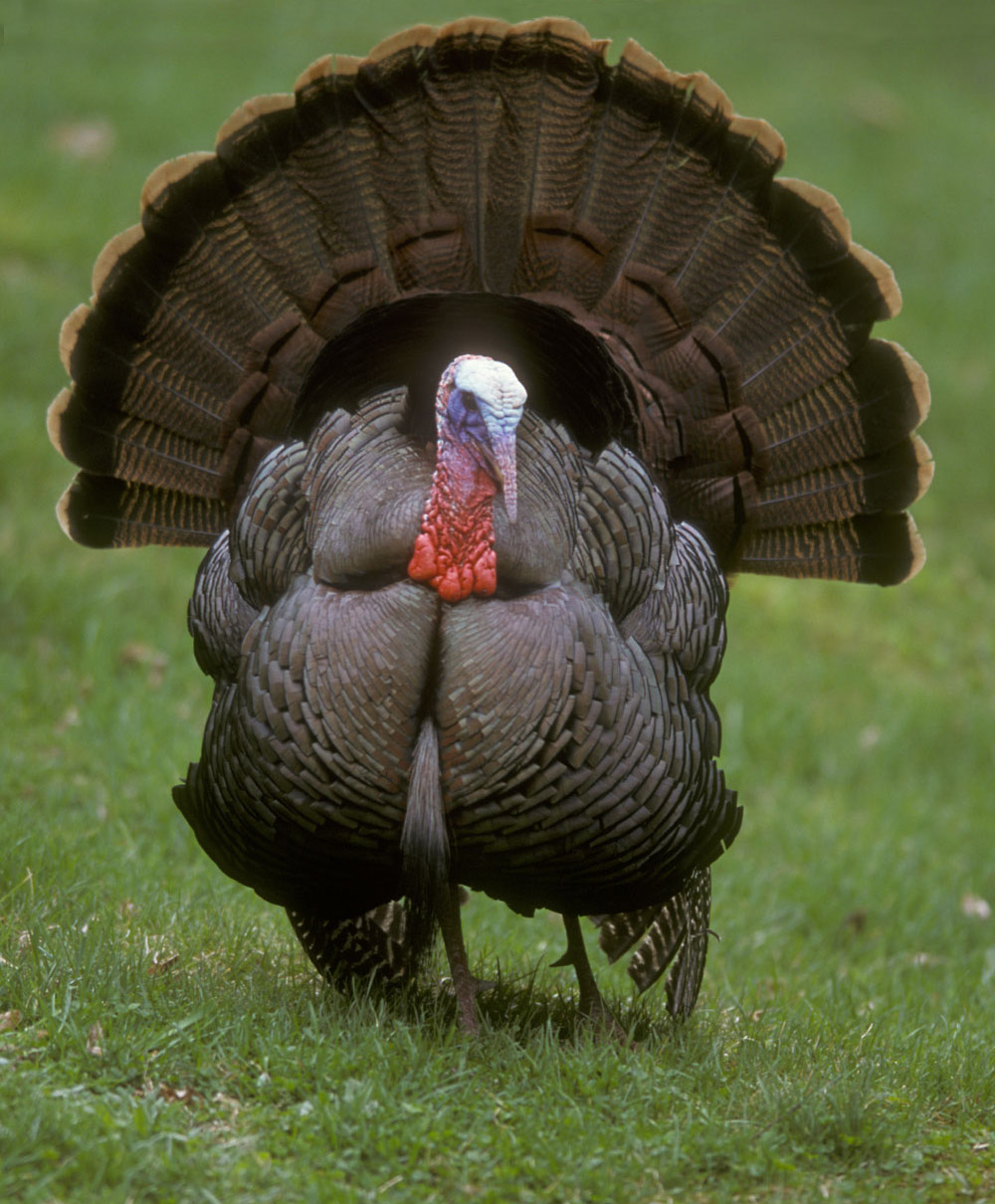 |
| Wild Hen Turkeys |
 |
| Wild Tom |
Heritage Turkeys are an old breed of turkeys that people used to raise before modern day advancements in large turkeys. The turkeys were larger than the wild turkeys and usually can not fly. However, they are still agile enough to jump fairly high and perch in trees at night. I used to raise a couple of different breeds of heritage turkeys, I even had a Bourbon Red Turkey before I passed it on to the Lyle Center for Regenerative Studies. It is estimated that there are only 5,000 breeding Bourbon Red Turkeys left in America. These types of turkeys are seeing a resurgance because of renewed interest in heritage breeds.
 |
| Bourbon Red Heritage Tom |
The type of turkey that you buy at the store is bred to be so big, that they cannot jump at all (sometimes they can't even walk). This is why turkeys now are able to feed such large families, because they are bred to be so large. In the past and at the first thanksgiving dinner, turkeys were nowhere near the size of what we see on the dinner table today.
So, you might be asking what does this have to do with gardens? Well, after having raised turkeys and kept them in my garden at home, and after some research. I have found that turkeys make GREAT insecticides. My turkeys were phenomenal at keeping bugs out of my garden. In fact, all summer long I had absolutely no problems with insects. Many farmers will say that the only insect that the turkey won't eat, is the insect it can't catch. Turkeys are great at pest control. In fact, my turkeys ate so many insects and even seeds from weeds, that they hardly ever at their feed, yet they remained healthy and fat. Now, that the Lyle Center has my old turkeys, I haven't yet come up with a plan to keep insects at bay. I may end up raising just one more turkey just for the sake of keeping pests away. But be careful, they will eat seedlings and young plants.
Raising a jake (baby turkey) can be a great experience for kids at a school. It is relatively easy and there are feed stores that can help you all over the inland empire. I suggest it for anyone that is looking for a natural pest control option, and for anyone that wants to teach more biological and ecological sciences. Also, the turkey poop will make great fertilizer!
No comments:
Post a Comment